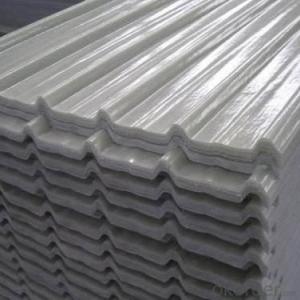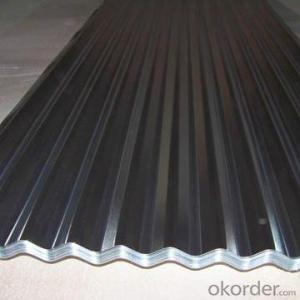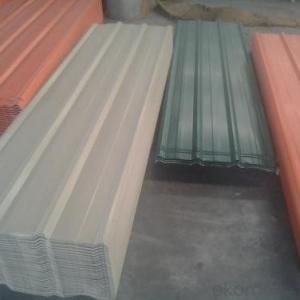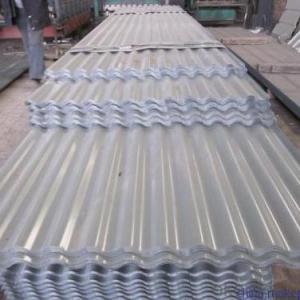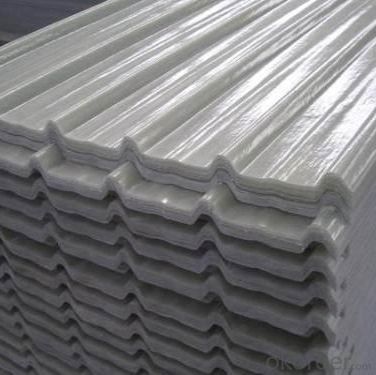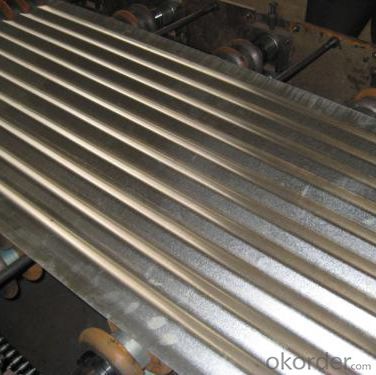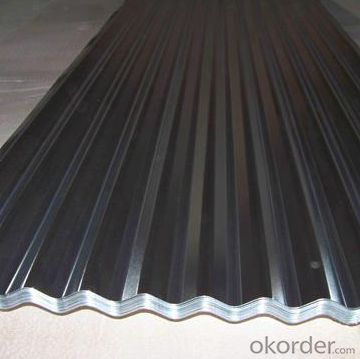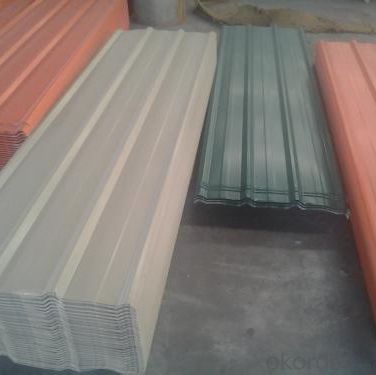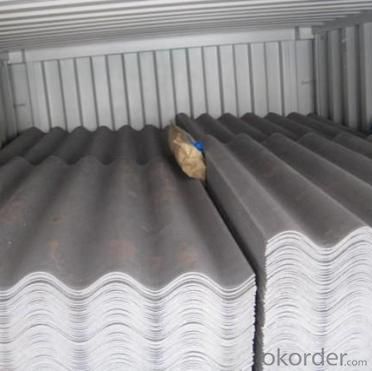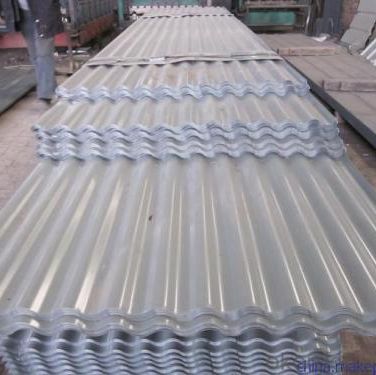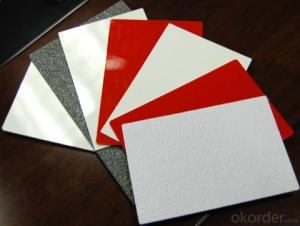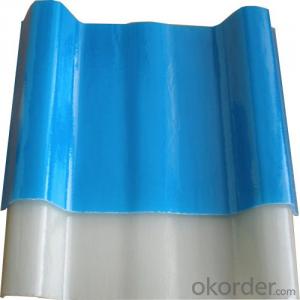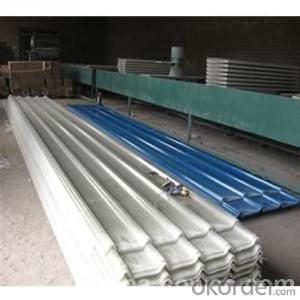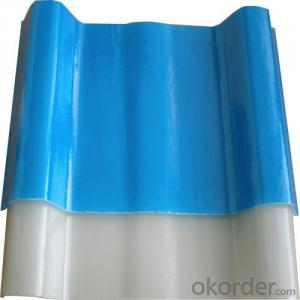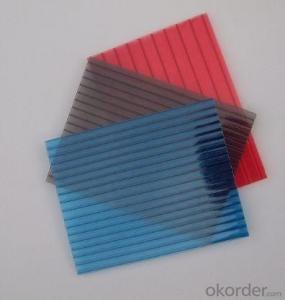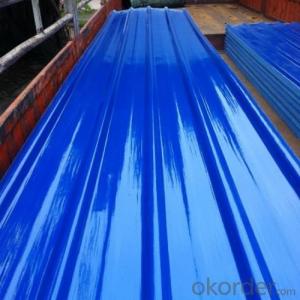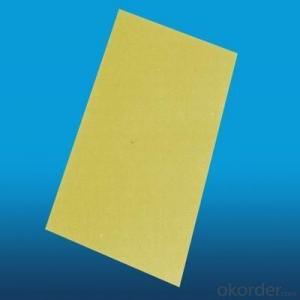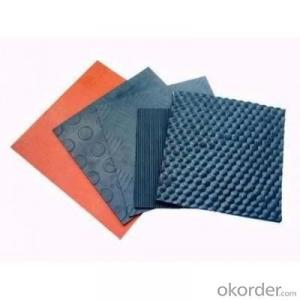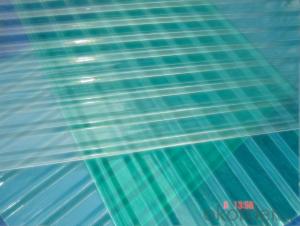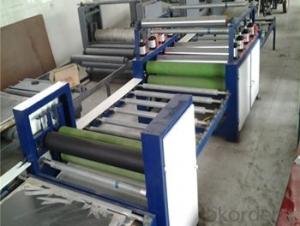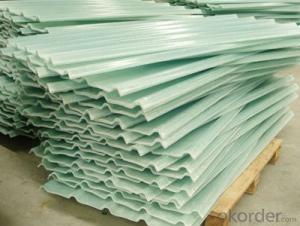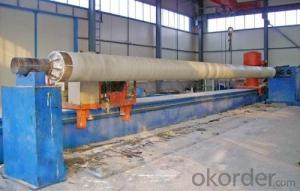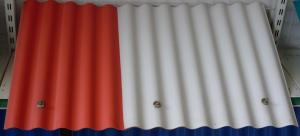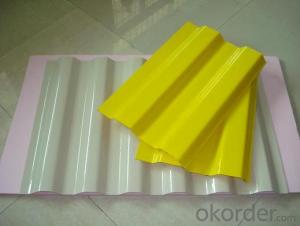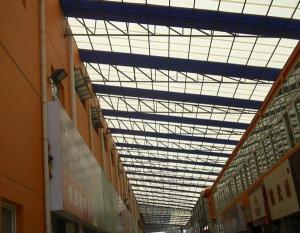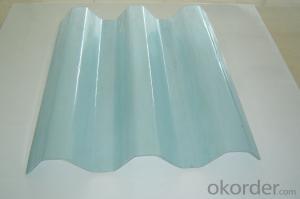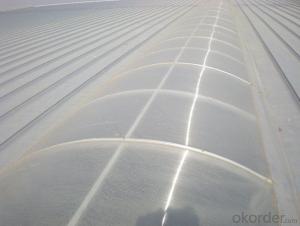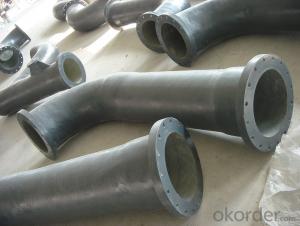Fiberglass Reinforced Plastic FRP Flat Roofing Sheet
- Loading Port:
- Tianjin
- Payment Terms:
- TT OR LC
- Min Order Qty:
- 200 m
- Supply Capability:
- 30000 m/month
OKorder Service Pledge
OKorder Financial Service
You Might Also Like
Specification
PRODUCT DESCRIPTION
FRP GRP Fiberglass Glassfiber Corrugated Roofing is a patent of our company, not like other FRP products, it is produced without yarn, instead, we use mat only. Therefore, the corrugated sheet is more strong in both horizontal and vertical direction.
Fiberglass corrugated sheet is usually used in construction site as protecting facility. It is dagarous for workers in building site since you never know if there is something hard drop down from the high area. So corrugated sheet is installed for preventing the stuff dropping down to hurt people.
FEATURES
a. anti-corrosion, non-rusty
b. lightweight and high strength
c. anti-flammable
d. anti-fatigue
e. anti-slippery and safety
f. anti-ageing
g. easy to installation and maintenance
h. excellent electromagnetism property
SPECIFICATIONS
Thickness | Mesh size | Panel size | Open area | Weight |
(MM) | (MM) | (MM) | % | (kg/m2) |
25 | 38*38 | 1220*3660 | 68 | 12.5 |
1220*4076 | ||||
1220*4000 | ||||
30 | 38*38 | 1220*3660 | 68 | 14.75 |
1220*4000 | ||||
38 | 38*38 | 1007*4047 | 68 | 19.5 |
1220*3660 | ||||
1220*4000 | ||||
50.7 | 50.7*50.7 | 1220*3660 | 71 | 23.5 |
1220*4000 | ||||
30 | 19*19 | 1007*4007 | 40 | 18.1 |
38 | 19*19 | 1007*4007 | 40 | 23.5 |
PICTURES
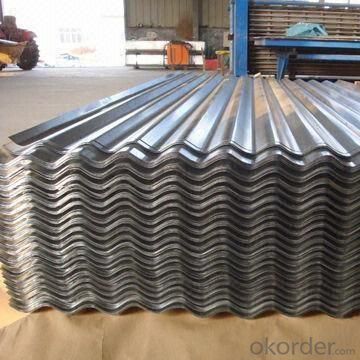
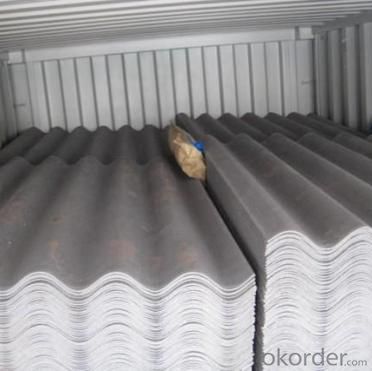
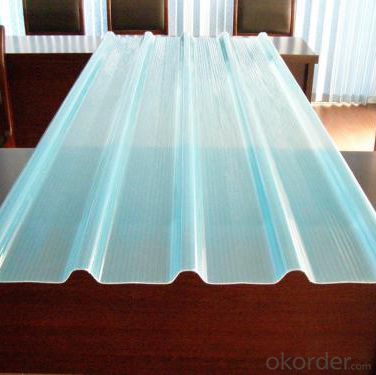
- Q: Can FRP roofing panels be recycled at the end of their lifespan?
- FRP roofing panels can indeed be recycled once they reach the end of their lifespan. FRP, a composite material composed of plastic resin reinforced with fibers like fiberglass, can be processed for recycling depending on the availability of recycling facilities in a given region. Recycling FRP panels involves grinding or shredding them into smaller pieces to separate the plastic resin from the fibers. These separated components can then be reused or repurposed for various applications. The plastic resin can be melted down and utilized in the production of new plastic products, while the fibers can be employed as reinforcements for concrete or other composite materials. It is important to note that not all recycling facilities are capable of handling FRP panels due to their composite nature and the difficulties involved in separating the plastic resin from the fibers. However, as the demand for sustainable practices and recycling of composite materials continues to rise, specialized recycling facilities dedicated to handling FRP and other composites are emerging. To ensure the proper disposal and recycling of FRP roofing panels, it is advisable to reach out to local recycling facilities or waste management companies to inquire about their capabilities and procedures for recycling FRP. Additionally, manufacturers and suppliers of FRP roofing panels may have specific recycling programs or partnerships in place to facilitate the recycling process.
- Q: Are FRP roofing panels suitable for religious or worship buildings?
- Yes, FRP (Fiberglass Reinforced Plastic) roofing panels are suitable for religious or worship buildings. FRP panels offer several advantages such as durability, weather resistance, and versatility in design. They can be customized to mimic the appearance of traditional roofing materials like shingles or tiles, allowing them to blend seamlessly with the architectural style of religious buildings. Additionally, FRP panels are lightweight, cost-effective, and require minimal maintenance, making them a practical choice for religious or worship buildings that prioritize longevity and functionality.
- Q: Are FRP roofing panels compatible with solar panels?
- Yes, FRP roofing panels are compatible with solar panels. The lightweight and durable nature of FRP roofing panels make them an ideal choice for supporting and protecting solar panel systems. Additionally, the translucent properties of FRP panels allow for effective sunlight penetration, enhancing the overall efficiency of the solar panels.
- Q: Can FRP roofing panels be installed on wooden structures?
- FRP roofing panels can indeed be mounted onto wooden structures. Their lightweight nature allows for easy installation on different surfaces, including wood. The crucial aspect to consider during the installation of FRP panels on wooden structures is to ensure a proper installation process. This involves confirming that the wooden structure is in good condition, devoid of any decay or harm, and providing adequate support for the panels. It is also imperative to adhere to the manufacturer's installation guidelines and recommendations to achieve a secure and long-lasting outcome. In summary, by implementing appropriate installation techniques, FRP roofing panels can be effectively affixed onto wooden structures, creating a resilient and weather-resistant roofing solution.
- Q: How do FRP roofing panels compare to metal roofing in terms of durability?
- FRP (Fiberglass Reinforced Plastic) roofing panels are known for their exceptional durability, making them a strong contender compared to metal roofing. While metal roofing is also durable, FRP panels offer several advantages. FRP panels are lightweight, impact-resistant, and resistant to corrosion, rust, and UV damage. They can withstand extreme weather conditions, such as hailstorms and high winds, without denting or warping. Additionally, FRP panels have a longer lifespan and require less maintenance compared to metal roofing. Overall, FRP roofing panels exhibit excellent durability and are a reliable choice for long-lasting protection.
- Q: Are FRP roofing panels resistant to scratching or abrasion?
- Yes, FRP (Fiberglass Reinforced Plastic) roofing panels are generally resistant to scratching or abrasion. The fiberglass reinforcement provides added strength and durability, making them less prone to damage from scratching or abrasion compared to other roofing materials. However, it is important to note that excessive or rough handling can still cause minor scratches or abrasions, so proper care and maintenance are recommended to maintain the longevity of FRP roofing panels.
- Q: Can FRP roofing panels be installed over purlins or directly on the roof deck?
- Yes, FRP roofing panels can be installed over purlins or directly on the roof deck. However, it is important to follow the manufacturer's guidelines and recommendations for proper installation and ensure that the purlins or roof deck provide adequate support for the panels.
- Q: Can FRP roofing panels be cut to fit specific dimensions?
- Yes, FRP (Fiberglass Reinforced Plastic) roofing panels can be cut to fit specific dimensions. FRP panels are known for their flexibility and can easily be cut to the desired size using basic cutting tools such as a circular saw or a jigsaw. It is important to take appropriate safety precautions while cutting FRP panels, such as wearing protective eyewear and gloves. Additionally, it is recommended to measure and mark the dimensions accurately before cutting to ensure a precise fit. Overall, FRP roofing panels offer the convenience of customization, allowing them to be easily cut to fit specific dimensions as required.
- Q: Can FRP roofing panels be used in data centers or server rooms?
- Yes, FRP (Fiberglass Reinforced Plastic) roofing panels can be used in data centers or server rooms. FRP panels are highly durable, lightweight, and resistant to corrosion, making them suitable for use in these environments. They offer excellent thermal insulation properties and can withstand high temperatures and humidity levels, which are common in data centers and server rooms. Additionally, FRP panels are easy to install and maintain, making them a practical choice for such applications.
- Q: Do FRP roofing panels require any special ventilation or air circulation?
- Special ventilation or air circulation is necessary for FRP roofing panels to ensure their longevity and prevent potential issues. The extent of the ventilation requirements may vary depending on the specific application and environment. FRP panels can withstand various temperatures and weather conditions, but proper ventilation is crucial. The main purpose of ventilation is to prevent the accumulation of heat and moisture beneath the roofing panels. Insufficient ventilation can lead to thermal expansion and damage to the panels. It can also cause condensation, which may result in corrosion or the growth of mold and mildew. To achieve proper ventilation, it is recommended to install a ventilation system that allows air to circulate beneath the roofing panels. This can be accomplished through ridge vents, soffit vents, or other types of ventilation systems that provide intake and exhaust airflow. The design and size of the ventilation system will depend on factors such as roof size, climate, and local building codes. Consulting the manufacturer's guidelines and recommendations for the specific FRP roofing panels is important as they may have specific ventilation requirements. It is also advisable to work with a professional roofing contractor who can assess your project's needs and ensure proper ventilation. In conclusion, special ventilation or air circulation is necessary for FRP roofing panels to prevent heat buildup and moisture condensation. Adequate ventilation is essential for maintaining the panels' integrity, longevity, and a healthy environment beneath the roof.
Send your message to us
Fiberglass Reinforced Plastic FRP Flat Roofing Sheet
- Loading Port:
- Tianjin
- Payment Terms:
- TT OR LC
- Min Order Qty:
- 200 m
- Supply Capability:
- 30000 m/month
OKorder Service Pledge
OKorder Financial Service
Similar products
Hot products
Hot Searches
Related keywords
